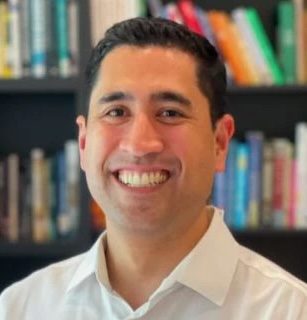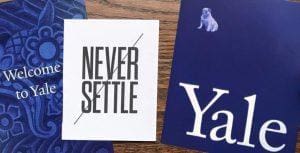College Appeal Letters: How to Appeal a Rejection Letter
- By David Reynaldo
- In appeals

How to Write an Appeal Letter for College Rejection
Why The Information that Makes Your Appeal Successful Isn't Always New and Compelling to You.
About the Author: David Reynaldo is the founder of College Zoom. We've honed our strategies and methods for appeals and waitlist letters over the past 16 years and have won appeals at top 25 ranked universities every year. Ranked #1 in Los Angeles (Yelp), we've even helped students succeed on appeals despite having academic qualifications that place them in the bottom 25%, 15%, 10% and 5% of the admissions pool.
David Reynaldo is the founder of College Zoom. We've honed our strategies and methods for appeals and waitlist letters over the past 16 years and have won appeals at top 25 ranked universities every year. Ranked #1 in Los Angeles (Yelp), we've even helped students succeed on appeals despite having academic qualifications that place them in the bottom 25%, 15%, 10% and 5% of the admissions pool.
The Appeal Process:
Did you know that many universities will let you appeal an admissions decision even if the option to do so is not listed on their website? The best way to find out if an appeal is allowed is to call the admissions office and inquire with a representative. Be sure to ask whether the school has specific appeal criteria (i.e. what kind of information they will consider and how their particular appeal process works).
How an Appeal Letter Works:
An appeal letter is essentially a fact-based rebuttal of the college's decision to not admit you. In order to be successful, the appeal must convey a logical argument with new and compelling information.
What Kind of "New" Information Matters?
New information is any information that wasn't explicitly stated in your application. It can come from things that happened after you applied as well as things that happened before you submitted your application. The topics you need to address in your appeal are often the same ones you discussed in your application. But, what's new are the details, angles, and context you didn't specifically articulate or explain in your original application. That, in addition to information that is obviously new, is considered new to admissions officers.
What is "Compelling" Information?
Compelling information is new information that shows you are a stronger candidate for admission (i.e. a better fit for the university) than you previously evidenced yourself to be. The leading mistake students make is using more than one sentence to tell a college how badly they want to be admitted. This is not new and compelling information and should not be the focus of your appeal.
Some Colleges Put Limits on the Kind of New and Compelling Information You Can Submit:
Every school defines new and compelling information differently. For example, at CU Boulder (a university you would never know accepts appeals by visiting their website) in order for your application to be reconsidered there must have been a substantial change in your academic work since your decision was issued. However, at the University of California, Los Angeles (UCLA): higher grades, recently acquired awards, or an increase in activities since your decision was issued hold absolutely no weight in the reversal of a decision (and each UC campus (e.g. UCSD, UCSB, and UC Berkeley) has different appeal criteria). To find out what your specific college wants to hear from you, it's always best to call the admissions office and determine which type of information they will base an appeal on.
Many Students Use Language from Appeal Letters They've Found Online — Beware.
The UC Berkeley appeal letter from this Huffington Post article (published in 2013) is perhaps the most plagiarized. The "You've Made a Mistake" letter reads beautifully the first time you read it. Every year we run into a student who attempts to plagiarize its same concept and/or words prior to meeting with us. Keep in mind: the same admissions officers across the country have read letters recycling that original letter's famous verbiage year after year. In fact, UC Berkeley, in particular, has long since enacted a 500 word limit to deter verbose appeals like the one in the article. Play to your unique merits—not filler language.
Submitting Your Appeal Earlier Does Not Give You an Advantage:
Rushing to get your appeal in faster is not advised as it will not give you an advantage. Rushed appeals sit in queue while others may get an edge over you by taking the time to submit a better quality letter. The university will not know its yield, and thus how many spots it will have available, until after the students who are choosing to enroll submit in their Statement of Intent to Register (SIR) deposits. That doesn't happen until after the appeal deadline. For freshman applicants, SIRs are due May 1st, on National Decision Day.
-
"Before we contacted College Zoom, we never fathomed hiring a private college counselor because my daughter had a 3.9 GPA and we believed she'd get in everywhere. After working through the college admissions process on our own, she was rejected by USC, her dream school, and UCLA had said no twice, denying the appeal we wrote on our own before seeking College Zoom's help. Her self esteem was in the toilet and we were desperate."
— Dr. Liane Colsky, daughter admitted to USC with our appeal
What Happens Once You Submit Your Appeal:
The college will review your appeal. Then, they'll review your original application again. Because the information in your appeal precedes the reading of your application, it puts your application into new context. If this new context combined with the original content in your application demonstrates that you are a stronger applicant than you had previously evidenced yourself to be, you'll be successful if spots are available.
Submitting Additional Letters of Recommendation:
Some universities allow additional letters of recommendation to be submitted with an appeal letter. The University of Washington—Seattle and UC Santa Barbara (UCSB) are a couple of examples. Back in 2009, when USC openly allowed recommendation letters, one of our students successfully reversed a USC admissions decision with an appeal letter complimented by new recommendation letters.
Avoid recommendation letters that repeat messages that your original recommenders already conveyed about you. The standard of new and compelling information applies here, too. Also, be warned that not all recommendation letters are created equal. Most of the time an additional recommendation will not help your case.
Important:
Maintaining academic performance and continuing to stay involved in extracurricular activities is something that is expected of all applicants. Therefore, getting higher grades or increasing your extracurricular involvement after you submit your application will not be a compelling base for your appeal argument. Your appeal will be more effective if you focuses on your strengths elsewhere.
Are You a Wait-Listed Applicant?
Any student who is not admitted to a university can appeal the admissions decision if that university has an appeal process. This includes students who are on the wait-list. Sometimes in addition to submitting a personal message with your wait-list opt-in, the college may also allow you to submit an appeal letter by following that university's appeal process guidelines to boost your chances of being selected for admission.
Did You Apply Early Decision/Action?
Wait to file your appeal until the regular decision applicants hear back for two reasons. By then the university will have a better idea of how many accepted students will actually matriculate (a.k.a. the number of vacant spaces in the entering class). Second, by that time in the school year, you'll have amassed more accomplishments and information that you may be able to use to show that you are a stronger candidate than you were previously evidenced to be.
The Risks of AI-Assisted Appeals
In our research, we used popular AI models to draft appeal and waitlist letters with three different approaches:
(1) Asking it to generate letter outlines without context from the original application,
(2) feeding the AI the original applications and prompting it to role-play as an admissions officer to design letter strategies, and
(3) providing the AI with existing letter drafts for analysis and improvement.
In comparing these outcomes against our 16-year database of successful appeal and waitlist letters, we identified the following patterns:
- AI over-emphasizes updates from the last few months without exploring new, more nuanced information from the before the application was submitted (this tends to be 80-90% of the focus of successful appeals)
- When prompted to role-play as an admissions officer, AI-generated arguments remain detached from specific university evaluation standards. This results in the incorrect weighting of themes and strategically unfocused letters.
- AI assumes any content you provide it is relevant and recommends improvements. However, successful letters do not revisit parts of the original application that were not problematic and do not strengthen qualifications that were not lacking.
- When the discernment of AI was tested by feeding it applications that had actually been accepted (to see if it could recognize their quality, the results showed that AI could not differentiate between the merits of an accepted application versus a rejected one in its proposed strategy.
- In letters AI drafted, the majority of the letter had 'filler-heavy' introductory and transitional statements. This structural bloat crowds out the space available for new and compelling information.
- Some drafts dedicated a substantive part of the appeal to be an enthusiastic love letter to the university, which is not a part of the admissions office's re-evaluation calculus.
- When prompted to create outlines that avoided these shortcomings, AI produced a disjointed list of updates, failing to synthesize the information into a strategic narrative
A Particularly Impressive Win:
We helped a freshman applicant with 3.8 GPA and 29 ACT score reverse his rejection letter from UCLA. Only the bottom 4.64% of admitted applicants had a GPA comparable to his. The average GPA for UCLA's entering class that year was 4.34.
We Can Help You:
A College Zoom appeal specialist can walk you step-by-step through analyzing your original application and articulating your most strategic appeal or waitlist letter.
We Begin by Grading Your Application
In the first meeting, we’ll grade your original application with you, live and 1-on-1, to answer your questions and identify deficiencies and missed opportunities. Most families are shocked to discover that more than 80% of the most compelling information used in successful appeal letters was available before they applied. However, the information was either not presented to its fullest potential or left out of the application entirely. Having honed our strategies and methods over the past 16 years, we'll cross-examine you with deep lines of questioning to uncover new and compelling information together.
We Will Pull the Right Information Out of You
We'll find specific substantiating details and show you how to articulate them. Often, the new and compelling information we discover is more than what can fit in your letter. Therefore, once everything is laid out, we'll help you prioritize and outline your argument in the most compelling way before the first meeting ends. This session is sold as a 1.5-hour meeting (costing $450). However, for majors requiring a portfolio, a 1 hour and 45 minute meeting is necessary to include the portfolio review (for a total cost of $525).
If another meeting to polish is desired, a 1.5 hour meeting is usually appropriate, but the second meeting can vary in length relative to the student's actual need. In this second meeting, our focus is on hard-core word-smithing to achieve the maximum impact in the smallest amount of space, which maximizes clarity. For example, we'll aim to help you engineer a statement that contains more detail, and has better flow and potency, than a version 2 to 3 times its length. The focus is on condensing potent arguments with minimal loss of detail, allowing you to squeeze in as many wow factors as is effectively possible into the allotted space. Then, we'll polish. When we’re done, you’ll not only feel better, but you’ll know that you’re submitting your absolute strongest letter.
Additionally, your letter can be re-used for most other colleges that accept appeals and waitlist letters. It will just need to be adjusted for each college's word limit.
You may also like

How to Write a Yale Deferral or Waitlist Letter
- March 19, 2025
- by David Reynaldo
- in appeals

How to Write a Boston College Waitlist or Appeal Letter

How to Write a Northwestern Waitlist or Deferral Letter

